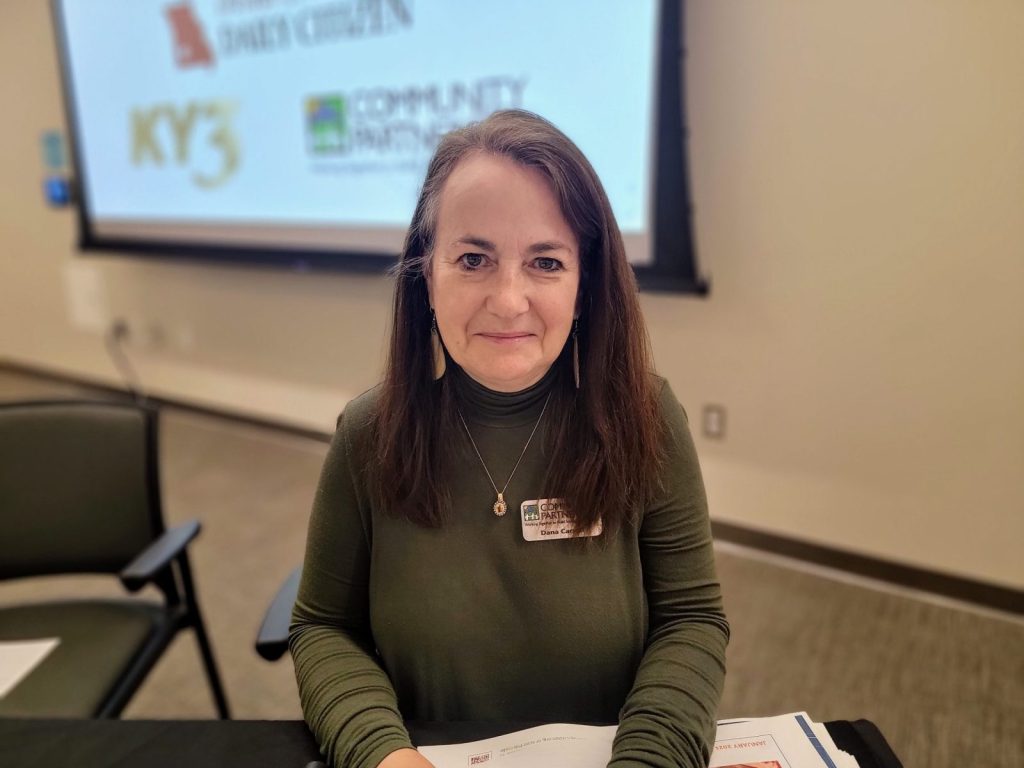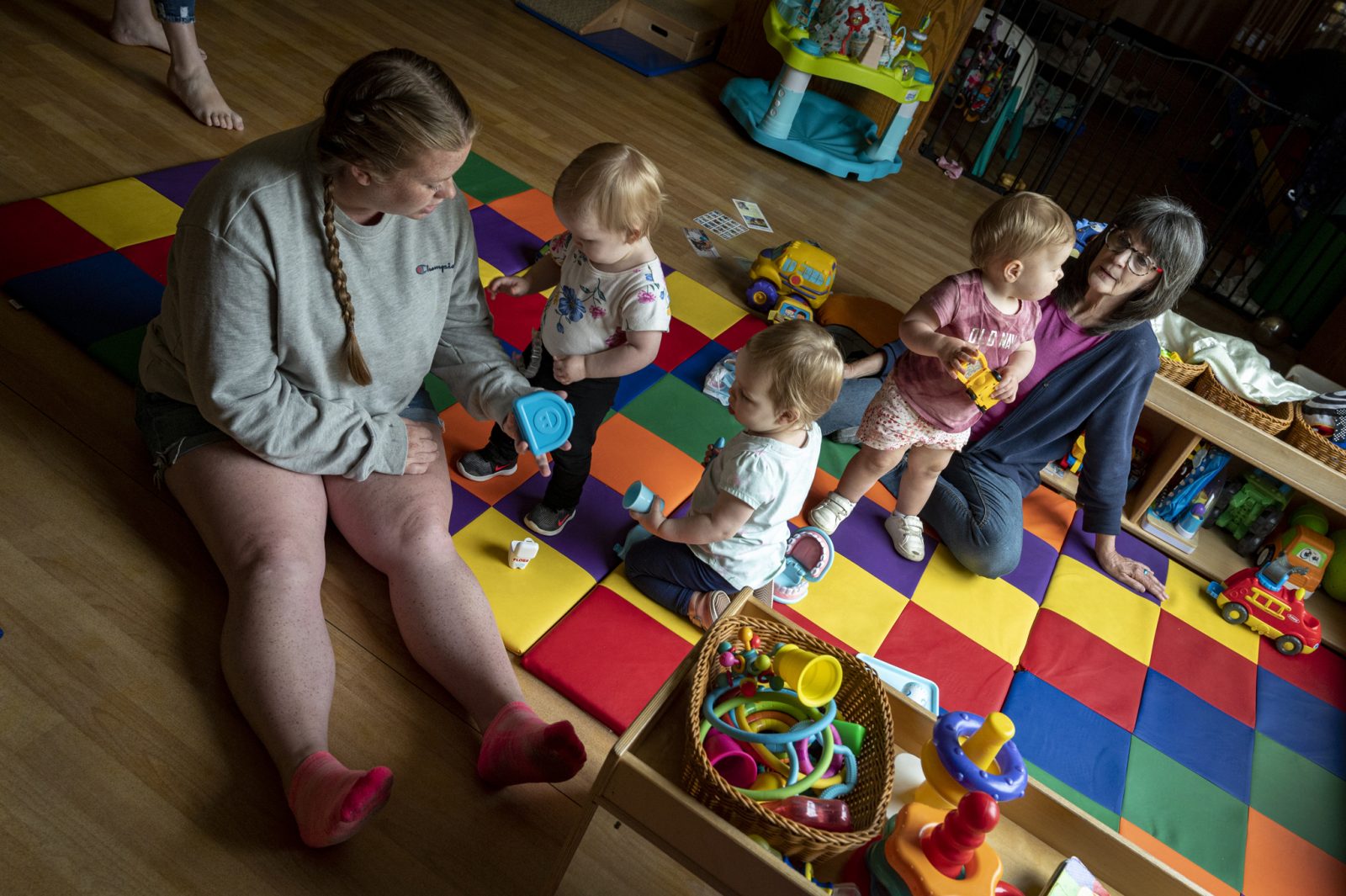In Gov. Mike Parson’s State of the State address on Jan. 18, where he laid out budget priorities for 2024, he placed heavy emphasis on tackling the state’s ongoing child care crisis.
Among a flurry of proposals, Parson proposed adding $78.5 million to raise the state's subsidy program that helps low-income families pay for child care. He also proposed new tax credits for businesses to provide on-site child care.
In 2022, the Hauxeda teamed up with KY3 to focus on the Child Care Crisis, finding a severe shortage of quality child care slots — and parents confused about where to turn for information — puts some families at risk. It also adds to workforce shortages as parents scramble to find affordable care.
Locally, some are hopeful progress is being made. But Gov. Parson, and many across the state, believe more needs to be done.
“There is a clear need to do better when it comes to early childhood,” Parson said in his speech to legislators.
STORIES FROM DAILY CITIZEN CHILD CARE CRISIS PROJECT
Problems facing the child care industry in Missouri
The child care industry was facing problems prior to the pandemic, but COVID-19 exacerbated the problems.
Parson highlighted statewide information that reflected many of the findings from the Child Care Crisis Project: prior to the pandemic, about 50 percent of Missourians lived in an area with a child care shortage, otherwise known as a child care “desert.”
Since the onset of the pandemic, roughly a third of child care facilities across the state have closed their doors.
“We know child care remains a struggle for many parents and businesses,” Parson said. “Child care providers often have to limit their hours due to staffing shortages or increase their prices. This poses a real challenge to parents as they weigh the decision to work or stay at home.”
In a 2021 study, the U.S. Chamber of Commerce Foundation found that Missouri’s child care crisis is costing the state about $1.35 billion annually.
Parson commended the work that’s already been done and the money that’s already been spent to address the problems facing the industry.
As an example, he pointed out the survival of Discovery Place Daycare in Jefferson City as an example of the progress that’s been made, and credited both the determination of the facility’s Executive Director Sharon Winton and the state’s new Office of Childhood.
But, like many other child care facilities across the state, they are still struggling.
“More and more families are seeking child care options,” Parson said. “And while she would love to help, she simply does not have the resources, space or staff to accommodate.”
That is similar to the situation uncovered in the Daily Citizen and KY3 special report. Most child care centers in Greene County continue to operate at one-half to two-thirds of capacity due to staff shortages.

Parson proposes more subsidies, tax credits and expansion of pre-K programs
Parson proposed a flurry of spending on different aspects of child care, each meant to address the multiple different problems facing the industry.
His plan would have three new child care tax credits, which he said would aim to improve facilities and increase wages for child care workers. It would include a child care contribution, employer-provided child care assistance and child care provider tax credits, according to state Rep. Betsy Fogle.
Parson also would like to increase child care subsidy rates through the state’s Child Care Subsidy Program by investing $78 million in provider’s statewide.
“Together, these actions will help more child care providers who start their businesses stay in business or expand their businesses,” Parson said.
Additionally, his proposal would invest $56 million to expand Missouri’s pre-kindergarten programs for low-income families. Under the program, 50 percent of all of-age students would be eligible to enroll in pre-k programs at their local public or charter school at no cost, according to Parson.
Fogle, Hough, nonprofit leaders share optimism
Fogle, a Springfield Democrat, is looking forward to working with her colleagues in the Missouri General Assembly to address child care, which she says has been a bipartisan priority for Parson, Lt. Gov. Mike Kehoe and the legislature.
“I’m very excited about the information the governor provided us,” she said.
She showed particular enthusiasm for the $78 million that Parson’s budget proposal would allocate towards increasing child care subsidy rates.
“This is something that I hear about all the time from families that are living in poverty and for families that have foster kids in their home, that they cannot find a child care provider that will take their children because of the low subsidy rates,” Fogle said.
“And I'm very excited to see exactly what the governor meant in that language and hope that we can create access not only for families that can afford child care, but particularly for those families that might be struggling or those families who have gone above and beyond and have welcomed foster children into their home and need a safe place for them to go during the day.”
Senate Appropriations Committee Chairman Lincoln Hough, R-Springfield, told the Missouri Independent that investments in child care will help working parents now, but quality programs will also help the state’s economy in the future.
“Good child care is preparing those kids for the start of their education, so it all works in concert, right?” Hough said.
Wendy Doyle, the CEO of United WE, a Kansas City-based nonprofit focused on advancing and empowering women, has been an advocate for addressing the child care challenges Missouri families face, particularly as it relates to women's economic growth.
“We commend Governor Parson for his leadership and prioritizing this,” Doyle said, while also crediting Kehoe as an important leader in emphasizing the problems facing the child care industry.
She stressed that in order to make the implementation of the plan successful, it would be vital to ensure the state has the infrastructure and right resources, especially when it comes to securing long-term success.
Dana Carroll, the vice president of Early Childhood and Family Development at the Community Partnership of the Ozarks, is most looking forward to Parson’s proposal to roll out higher subsidy rates and expand pre-K programs.

“There are a lot of things that have been floated out there as ways to solve the crisis and I don't know that anybody has the one silver bullet,” Carroll said. “But it's going to definitely need to include money.”
Fogle, Doyle and Carroll, while all optimistic about the future of child care in Missouri and enthusiastic about Parson’s plans, understand that there is plenty of more work to be done, between getting these programs off the ground and ensuring their sustained success.
“I don't think it will be solved overnight,” Fogle said. “The process takes a while, sometimes a frustrating amount of time, for applications to get processed, for the state government to respond and get money out the door.”
While this plan is for the state’s 2024 fiscal year, which starts July 1, Doyle is hopeful that with the investments made in child care from the American Rescue Plan (ARPA), improvements made in 2023 will create momentum going forward.
“My hope is that in five to 10 years, we no longer have constituents that are reaching out to their elected officials, who are unable to enter into the workforce because they can't find quality and affordable child care,” Fogle said.




